Decolonizing Feminism
Published by Rowman & Littlefield International Ltd
Unit A, Whitacre Mews, 2634 Stannary Street, London SE11 4AB
www.rowmaninternational.com
Rowman & Littlefield International Ltd. is an affiliate of Rowman & Littlefield
4501 Forbes Boulevard, Suite 200, Lanham, Maryland 20706, USA
With additional offices in Boulder, New York, Toronto (Canada), and Plymouth (UK)
www.rowman.com
Selection and editorial matter 2017 Margaret A. McLaren
Copyright in individual chapters is held by the respective chapter authors.
All rights reserved. No part of this book may be reproduced in any form or by any electronic or mechanical means, including information storage and retrieval systems, without written permission from the publisher, except by a reviewer who may quote passages in a review.
British Library Cataloguing in Publication Data
A catalogue record for this book is available from the British Library
ISBN: HB 978-1-7866-0258-9
PB: 978-1-7866-0259-6
Library of Congress Cataloging-in-Publication Data Available
ISBN: 978-1-78660-258-9 (cloth : alk. paper)
ISBN: 978-1-78660-259-6 (pbk. : alk. paper)
ISBN: 978-1-78660-260-2 (electronic)
 The paper used in this publication meets the minimum requirements of American National Standard for Information SciencesPermanence of Paper for Printed Library Materials, ANSI/NISO Z39.481992.
The paper used in this publication meets the minimum requirements of American National Standard for Information SciencesPermanence of Paper for Printed Library Materials, ANSI/NISO Z39.481992.
Printed in the United States of America
Preface
Toward a Decolonial Feminism for the 99 Percent
Chandra Talpade Mohanty
As I write this, our understandings of feminism, decolonization, and transnationalism are in flux, contested in social movements, state policy, and social and political theory. In 2010, Jacqui Alexander and I wrote about the use of the transnational as a normativizing gesture in neoliberal times. We asked then what a radical, counterhegemonic, transnational/decolonial feminism might look like. My questions are not substantially different seven years later, although the explicit exercise of power is more visible at this historical moment. In 2017, the transnational necessitates acknowledging explicitly carceral regimes; geopolitical climate destruction; militarized national borders; massive displacement of peoples (war, climate, and economic refugees); proliferation of corporatist, racist, misogynist cultures; lean-in and glass ceiling (liberal) feminisms; the decimation of labor movements, and the rise of right-wing, proto-fascist governments around the world (Modi in India, Erdovan in Turkey, Trump in the United States).
An important moment then for a book on Decolonizing Feminism, especially one that offers original, nuanced, and visionary feminist analysis that crosses epistemological and disciplinary borders and provides conceptual tools to decolonize hegemonic feminisms and fracture the transnational as a normativizing gesture. Organized around the central question of what it would mean to decolonize transnational feminism in the age of neoliberalism, feminist philosophers, and social theorists take up core transnational feminist concerns in deeply thoughtful and provocative analyses of human rights, citizenship and immigration, and dialogue/solidarities in the quest for justice and freedom. The volume consists of ten smart and provocative chapters organized around four central themes: Decolonizing Epistemologies, Methods, and Knowledges; Rethinking Rights; Citizenship and Immigration: The Space-Between; and Decolonizing Dialogue, Solidarity, and Freedom.
Margaret A. McLaren in her Introduction to the volume describes the questions at the core of the project: What does it mean to decolonize feminism? How do the frameworks/approaches of decoloniality and feminism inform, enhance, contradict, and mutually influence one another? How can decolonial approaches to feminism help to navigate twenty-first-century concerns of the increasing influence of global capital and transnational corporations, repressive state forces, nationalism, xenophobia, the forced displacement of peoples and immigration, the increasing gap between the wealthy and the poor within nations, the increasing global wealth gap between nations of the global North and the global South, and the looming environmental crisis?
These are urgent and important political and intellectual questions at this time when the rhetoric of transnational has been co-opted on a large scale in neoliberal university settings. Administrators are transnational since they travel across the globe in search of profitable partnerships with universities in other countries, and for international students who can pay for higher education that is no longer available to working-class and poor students in the United States. Academic curricula are also transnational since study abroad programs now buttress a normative curriculum that supposedly prepares students to compete in a global market. In the U.S. academy transnational often becomes a placeholder for business as usual, marked as progressive in the face of a conservative, xenophobic backlash. Globalization and transnational knowledge production becomes the new managerial mantra in neoliberal universities.
In addition, the larger geopolitical landscape poses urgent and significant challenges to those of us committed to an anti-capitalist, anti-imperialist, decolonial feminist praxis. While the old/new, constantly shifting political terrain of Trump and company suggests the consolidation of a white supremacist, ableist, heteropatriarchal, carceral regime with billionaire state managers, the multiple, visible, and persistent uprisings of communities in resistance is truly extraordinary. Since the inauguration of Donald Trump (less than two months ago), there have been over 150 documented demonstrations, rallies, boycotts, and strikes across the country, in small and large cities and towns. New solidarities have been forged, and feminists of all stripes and colors continue to be in leadership in most of these mobilizations. What lies ahead is the hard work of deepening and consolidating the nascent solidarities that have emerged through these mobilizations, to imagine a decolonized public polity anchored in a horizontal feminist solidarity across borders and divides. Recently (March 8, 2017), the organizers of the International Womens Strike called for a feminism for the 99 percent, a grassroots, anti-capitalist, anti-imperialist feminism where the idea is to mobilize women, including trans women, and all who support them in an international day of strugglea day of striking, marching, blocking roads, bridges, and squares, abstaining from domestic, care, and sex work, boycotting, calling out misogynistic politicians and companies, and striking in educational institutions. These actions are aimed at making visible the needs and aspirations of those whom lean-in feminism ignored: women in the formal labor market, women working in the sphere of social reproduction and care, and unemployed and precarious working women.
The challenge now, postMarch 8, 2017, is how to connect this vision of feminism for the 99 percent to the material praxis of the diverse, gendered, and racialized communities of women (cis and trans) across the spectrum of class, sexuality, ability, and citizenship status. Operationalizing such a vision requires deep and innovative thinking and praxis around questions of decoloniality, transnational feminism, and solidarity, and it is just this kind of thinking that is evident in the pages of this volume. Decolonizing Feminism

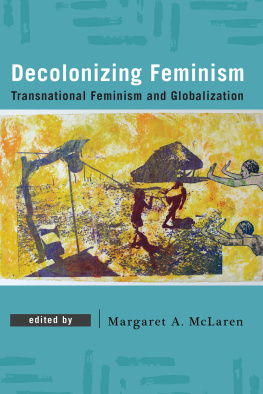

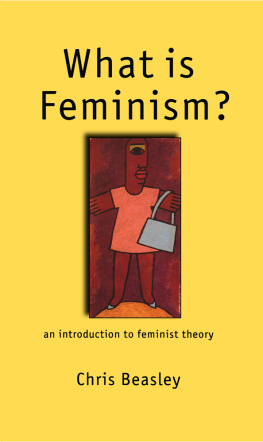
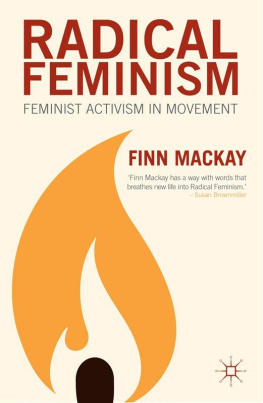
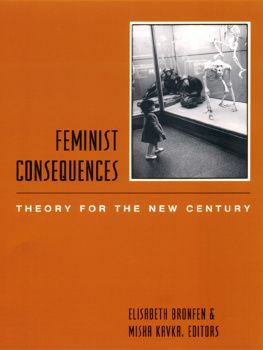
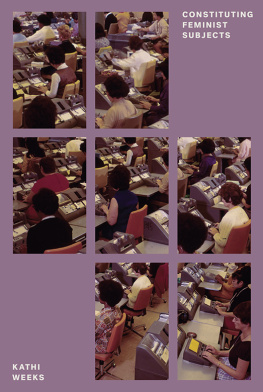
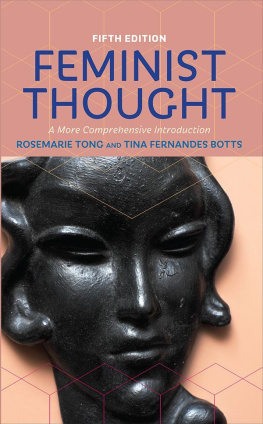
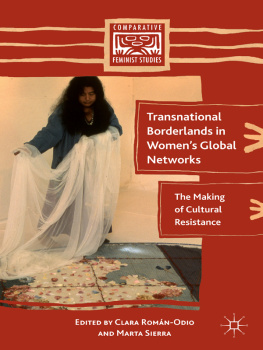

 The paper used in this publication meets the minimum requirements of American National Standard for Information SciencesPermanence of Paper for Printed Library Materials, ANSI/NISO Z39.481992.
The paper used in this publication meets the minimum requirements of American National Standard for Information SciencesPermanence of Paper for Printed Library Materials, ANSI/NISO Z39.481992.